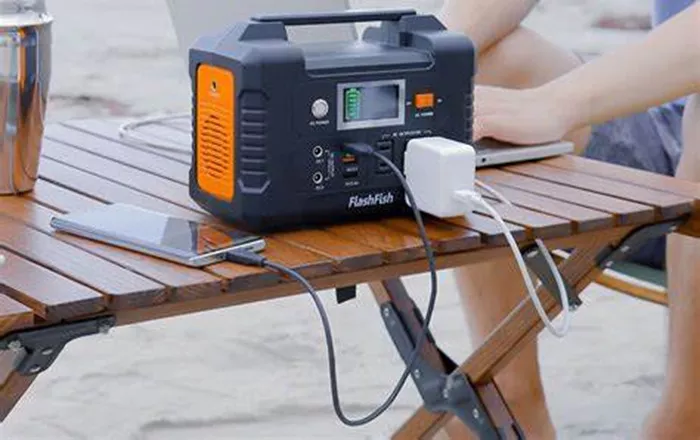Generators are essential for providing power during outages, outdoor adventures, or remote living. Whether you need a reliable backup for your home or a portable solution for camping, choosing the right generator can make all the difference. In this guide, we’ll explore the 6 best generators for home and camping, their features, and how to pick the perfect one for your needs.
Why Do You Need a Generator?
For Home Use
Power outages can happen unexpectedly due to storms, grid failures, or natural disasters. A home generator ensures your appliances, lights, and essential devices stay running, providing comfort and safety.
For Camping
Camping generators are compact, portable, and designed to power small appliances, lights, and gadgets. They’re perfect for outdoor enthusiasts who want to enjoy modern conveniences while exploring nature.
Types of Generators
1. Portable Generators
Portable generators are versatile and easy to move. They’re ideal for camping, tailgating, or as a temporary backup for your home.
2. Inverter Generators
Inverter generators are quieter, more fuel-efficient, and produce clean energy suitable for sensitive electronics like laptops and smartphones.
3. Standby Generators
Standby generators are permanently installed and automatically turn on during a power outage. They’re perfect for whole-house backup but are more expensive.
Key Features to Consider
Power Output
Determine the wattage you need based on the appliances you want to power. For camping, 1,000-2,000 watts may suffice, while homes may require 5,000 watts or more.
Fuel Type
Generators run on gasoline, propane, diesel, or solar power. Gasoline is common but less eco-friendly, while propane and solar are cleaner options.
Noise Level
Inverter generators are quieter, making them ideal for camping and residential areas. Look for models with noise levels below 60 decibels.
Portability
For camping, choose lightweight generators with handles or wheels. Home standby generators don’t need to be portable.
Runtime
Consider how long the generator can run on a single tank of fuel. Longer runtimes are better for extended outages or camping trips.
Top Generators for Home Use
1. Champion 7500-Watt Dual Fuel Generator
This powerful generator runs on gasoline or propane, offering flexibility and reliability. It’s perfect for powering essential home appliances during outages.
2. Generac 22,000-Watt Standby Generator
For whole-house backup, the Generac standby generator is a top choice. It’s automatic, durable, and provides uninterrupted power.
3. Westinghouse WGen7500 Portable Generator
With a robust 7,500-watt output, this portable generator is ideal for homes and job sites. It’s easy to use and offers a long runtime.
Top Generators for Camping
1. Honda EU2200i Inverter Generator
Known for its quiet operation and reliability, the Honda EU2200i is perfect for camping. It’s lightweight and produces clean energy for sensitive devices.
2. Jackery Explorer 1000 Portable Power Station
This solar-powered generator is eco-friendly and silent. It’s great for camping and outdoor activities, providing reliable power without noise or fumes.
3. WEN 56203i Super Quiet Inverter Generator
The WEN 56203i is affordable, lightweight, and produces only 51 decibels of noise, making it an excellent choice for campers.
How to Choose the Best Generator
Assess Your Power Needs
Make a list of the appliances and devices you need to power. Calculate the total wattage to determine the generator size you require.
Consider Your Budget
Generators range from 200to5,000 or more. Set a budget and choose a model that offers the best value for your needs.
Check Safety Features
Look for features like automatic shutoff, low-oil sensors, and overload protection to ensure safe operation.
Read Reviews
Customer reviews and expert opinions can help you identify reliable models and avoid potential issues.
Maintenance Tips for Generators
Regular Oil Changes
Change the oil after every 50-100 hours of use to keep your generator running smoothly.
Clean Air Filters
Dirty air filters can reduce efficiency. Clean or replace them regularly.
Store Properly
Store your generator in a dry, cool place. Use a cover to protect it from dust and moisture.
Test Frequently
Run your generator periodically to ensure it’s in good working condition.
FAQs About Generators
1. Can I use a generator indoors?
No, generators produce carbon monoxide, which is deadly. Always use them outdoors in a well-ventilated area.
2. How do I calculate the wattage I need?
Add up the wattage of all the appliances you want to power. Add 20% extra to account for startup surges.
3. What’s the difference between an inverter and a conventional generator?
Inverter generators produce cleaner energy and are quieter, while conventional generators are more powerful but noisier.
Conclusion
Choosing the best generator for home and camping depends on your power needs, budget, and preferences. Portable and inverter generators are great for camping, while standby generators are ideal for home backup. By considering factors like power output, fuel type, and noise level, you can find the perfect generator to keep your life running smoothly, no matter where you are.
This guide provides everything you need to make an informed decision. Whether you’re preparing for a power outage or planning your next camping trip, the right generator will ensure you’re never left in the dark.
Related topic:
- 5 Best Portable Gas Generators for Home Use
- 3 Top-Rated Home Backup Generators
- What is a Good Wattage for a Home Generator?

